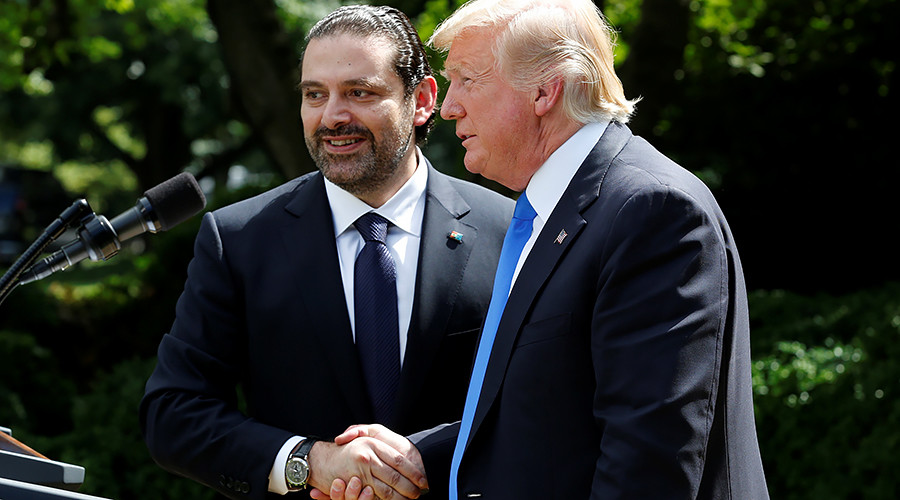
Hariri was said to be looking for continued US support for the Lebanese military, and plans by US to tighten sanctions on the Lebanese militant group Hezbollah. Trump didn’t mention any details of the support but said Hezbollah “is a menace to the Lebanese state, the Lebanese people, and the entire region.” He added: “The group continues to increase its military arsenal, which threatens to start yet another conflict with Israel, constantly fighting them back. “With the support of Iran, the organization is also fueling the humanitarian catastrophe in Syria. Hezbollah likes to portray itself as a defender of Lebanese interests, but it’s very clear that its true interests are those of itself and its sponsor, Iran. “Lebanon is on the front lines against terrorism of ISIS, Al-Qaeda and Hezbollah,” said Trump. Lebanon has been called a natural Arab ally of Washington, with a religiously diverse and relatively Western and secular society. It is also strategic, as an outlet to the Mediterranean, borders Israel and acts as a gateway to and from war-torn Syria. The State Department’s 2018 budget plan cuts military assistance to Lebanon and other vulnerable Middle East countries by 80 percent compared to 2016 fiscal year. The proposed cuts would mean eliminating the Foreign Military Financing program, which made up about $86 million of the budget in 2016. The budget estimates Lebanon will receive $85 million in economic assistance, down from $110 million in 2016.
Without support from Washington for its military, Lebanon could be forced to accept Iran’s military patronage. When reporters asked Trump about how the US will help Lebanon with Syrian refugees, he responded: “We are helping. Getting rid of ISIS is one way. The success against ISIS is extraordinary, in the last four or five months, that previous administration made in eight years. ISIS in Syria, ISIS in Iraq, we have made tremendous strides, our military is an incredible fighting force. “Before they had to call this House, I let the generals to do what they had to do,” said Trump. Trump said he was “not a fan of Assad,” referring to Bashar Assad, the president of Syria. “I certainly think what he has done that to the country and humanity is horrible,” added Trump. Earlier this month, the Washington Post reported the Trump administration had allegedly planned to cancel a CIA-funded program to train Syrian rebels fighting against Assad’s government. The alleged decision was reportedly taken in consultation with CIA Director Mike Pompeo and National Security Advisor H.R. McMaster ahead of Trump’s meeting with Russian President Vladimir Putin in Hamburg, Germany, earlier in July. During the Trump-Putin meeting on the sidelines of the G20 summit, both leaders reached a ceasefire agreement for southwest Syria.
The secretive CIA program in question, dubbed Timber Sycamore in the US press, was authorized by Barack Obama in 2013 in a bid to give Syrian rebels leverage in defeating Syrian President Bashar Assad. Initially, it was reportedly limited to non-lethal aid and training; later leaks in the media indicated various weaponry was also supplied to groups considered moderate. However, the program did not appear to go as smoothly as expected. In 2015, General Lloyd Austin, CENTCOM commander at the time, told Congress that only four or five US-trained fighters had actually gone to Syria to battle IS, out of the 5,000 the Pentagon had envisaged. Earlier that year, then-Defense Secretary Ash Carter told the Senate Armed Services Committee that less than 1 percent of the 7,000 Syrian volunteers for the US-sponsored train-and-equip program had made it through the vetting process. “As of July 3, [2015] we are currently training about 60 fighters,” Carter acknowledged. “I can look out at your faces and you have the same reaction I do, which is that that’s an awfully small number.”



